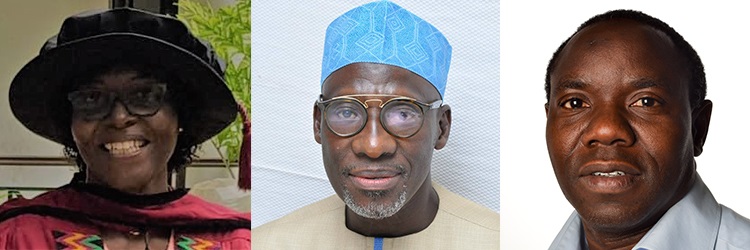Future Leaders – African Independent Research (FLAIR) fellowships are for talented African scientists with the potential to become leaders in their field. Here are our top tips on what makes a great application.

Future Leaders – African Independent Research (FLAIR) fellowships are for talented African scientists with the potential to become leaders in their field. These fellowships help scientists build independent research careers in sub-Saharan African institutions and do cutting-edge scientific research addressing global challenges facing developing countries.
Each FLAIR fellowship offers up to £150,000 per year, alongside a programme of support to develop fellows as leaders including training and mentoring, and opportunities to network both regionally and internationally.
Fellowships are a partnership between The African Academy of Sciences (AAS) and the Royal Society, supported by the Global Challenges Research Fund (GCRF).
Here are our top tips on what makes a great application.

- Global challenges research with impact in developing countries
“We want to see how your research will address global challenges facing Africa beyond the lifetime of the grant.” – Dr Tom Kariuki, The African Academy of Sciences
FLAIR fellowships aim to tackle global challenges, especially those affecting developing nations. Explain how funding will help you tackle these. Read about the Global Challenges Research Fund’s (GCRF) aims on our website and this video.
- Capacity development and added value
“I like applications which clearly tell me how the proposed research will increase the ability of the applicant to be a research leader and build capacity for world-class research at their host organisation.” – Professor Sebsebe Demissew, Addis Ababa University
Say how your research will develop you as a research leader and build research capacity at your host organisation. How will your project improve research in Africa?
- Career development
“We want to see applications from early career researchers who are moving towards leading their own team so your proposal should tell us how a FLAIR fellowship will develop your career from where you are now.” – Professor Esther Akinlabi, University of Johannesburg
Explain why this point in your research career is the best time to be undertaking a FLAIR fellowship. What career stage are you at now and where do you think you will be in your career after completing a FLAIR fellowship?
- Methodology
“As a reviewer, I am interested in the scientific methods which you will use to meet your objectives and why these methods are the most suitable for the global challenge you are addressing.” – Professor Anotida Madzvamuse, University of Sussex
“A clear and appropriate methodology which relates to your objectives will help to show reviewers that you understand the specifics of your research and not just the context.” – Dr Badria El Sayed, Tropical Medicine Research Institute of Sudan
Tell us what your research methods are and include detail on the methodology of the proposed research. Show you understand the required methods and data analysis.
- Objectives/Outcomes
“Tell us what specific outcomes your research will lead to and what impact this will have in developing countries.” – Dr Dorcas Osei-Sarfo, University of Ghana
Propose clear and realistic objectives for a two-year fellowship. How are you going to change the world?
- Mentorship
“I like applications which have included support from a mentor in their field and I think this can really strengthen your competitiveness.” – Dr Assan Jaye, Medical Research Council The Gambia Unit at London School of Hygiene and Tropical Medicine
Identify outstanding academics in your field who could act as a mentor during your fellowship. This will boost an application. Better yet, find a mentor is able to help prepare your application.
- Collaboration
“We like to see applications from researchers who are looking to develop their capacity to be a research leader by collaborating with other institutions. This can benefit research outcomes as well as the career development of the applicant.” Dr Tom Kariuki, The African Academy of Sciences
Try and incorporate national and international collaborations, both in Africa and beyond,. If you do, make sure any travel required is included in your proposed budget.
- Get advice
“It’s a really good idea to have someone else advise on your application before you submit it. I recommend you ask a supervisor or research advisor to read your application and make recommendations for ways to improve it.” – Professor Esther Akinlabi, University of Johannesburg
Ask an academic supervisor, research advisor, or the research office at your proposed host organisation to check your application before you submit it. They will help make your application stronger.





